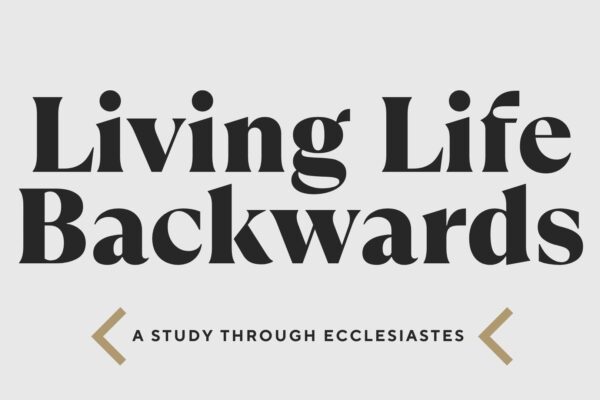The Imagination of a Child
Many children have incredible imaginations. This is something we can all resonate with. We’ve all been there, dreaming up amazing, joyful, and fantastic scenarios. These imaginative spaces in our lives eventually lead us to understand the real world. However, transitioning from the imaginary world to the real world can be confusing and frustrating for kids. In the imaginary world, everything is perfect: you can buy whatever you want, hit the game-winner every time, have all the friends you want with no drama, and there’s no pain or death. But as we grow, we realize the real world is different. You can’t buy anything you want, you don’t hit every shot, broken relationships are hard to mend, and pain and death are real.
The Gift of Ecclesiastes
The book of Ecclesiastes is one of God’s gifts to help us navigate the real world. The author, who identifies himself as “The Preacher,” uses shock tactics to get our attention. Ecclesiastes is part of the Old Testament’s “Wisdom Literature,” which means it contains keys to living a purposeful life. However, it can come across as abrupt, confusing, and confrontational. Before we dig into the text, there are a few key ideas the Preacher wants us to understand.
The Reality of Death
The first sobering reality the Preacher presents is that someday, we are all going to die. (Welcome to New City, haha.) We don’t know when or how, but we know that we will. The Preacher asks, “Are you ready to die?” because he believes that only a proper perspective on death provides a true perspective on life. Ecclesiastes teaches us that life is complex and messy, sometimes brutally so, but there is a way to look at the mess: the end will put it right. When we stand before God as our Creator, everything will be explained.
Living Life Backward
Our series title, “Living Life Backward,” encapsulates this idea. We tend to live life forward, planning and dreaming about the future. Ecclesiastes encourages us to live backward, taking the certainty of our future death and working back from that point into the details of our lives. The destination makes sense of the journey. Knowing where we are heading helps us understand what we need to do before we get there. The Preacher urges us to set our priorities, goals, greatest ambitions, and strongest desires by considering the end of our lives. Only in preparing to die can we truly learn how to live.
A New Perspective on Life
The Preacher says in Ecclesiastes 1:2: “Vanity of vanities, says the Preacher, vanity of vanities! All is vanity. This is the first thing the Preacher says, and it’s a shock tactic to wake us up. He’s telling us to stop pretending about life and face reality. The NIV translates the Hebrew word “Habel” as “meaningless,” but it can also be translated as “breath” or “breeze.” The Preacher says everything is vanity – a mist, a vapor, a puff of wind, a bit of smoke.
The Brevity of Life
This concept is echoed in other scriptures, such as Psalms and James. For instance:
Psalm 39:5-6:
You have made my days a mere handbreadth;
the span of my years is as nothing before you.
Everyone is but a breath (habel), even those who seem secure.
Surely everyone goes around like a mere shadow…
And:
Psalm 144:3-4:
Lord, what are human beings that you care for them,
mere mortals that you think of them?
They are like a breath (habel);
their days are like a fleeting shadow.
James 4:14 also states:
What is your life? For you are a mist that appears for a little time and then vanishes.
The Preacher’s portrayal of life as a mere breath is a simple truth: life is short.
An Object Lesson
To illustrate this, let’s consider a sparkler. When you light a sparkler, the puff of smoke it produces is real, but it is also transient, temporary, and vanishes quickly. The Preacher uses “habel” to convey that our lives are short like that puff of smoke. Life goes by quickly, so why spend our time on meaningless things? When we focus on the end, we begin to prioritize what is essential, see life in a different light, and focus on what truly matters.
Living with the End in Mind
Consider this: how often do you see your parents? Life is short – how will we live? What would it look like if we started living life backward, with the end in mind? What would we invest in? What hard conversations would we have? Who would we spend our time with? What goals would we pursue?
Life is short. Let’s live with purpose, keeping the end in mind.


